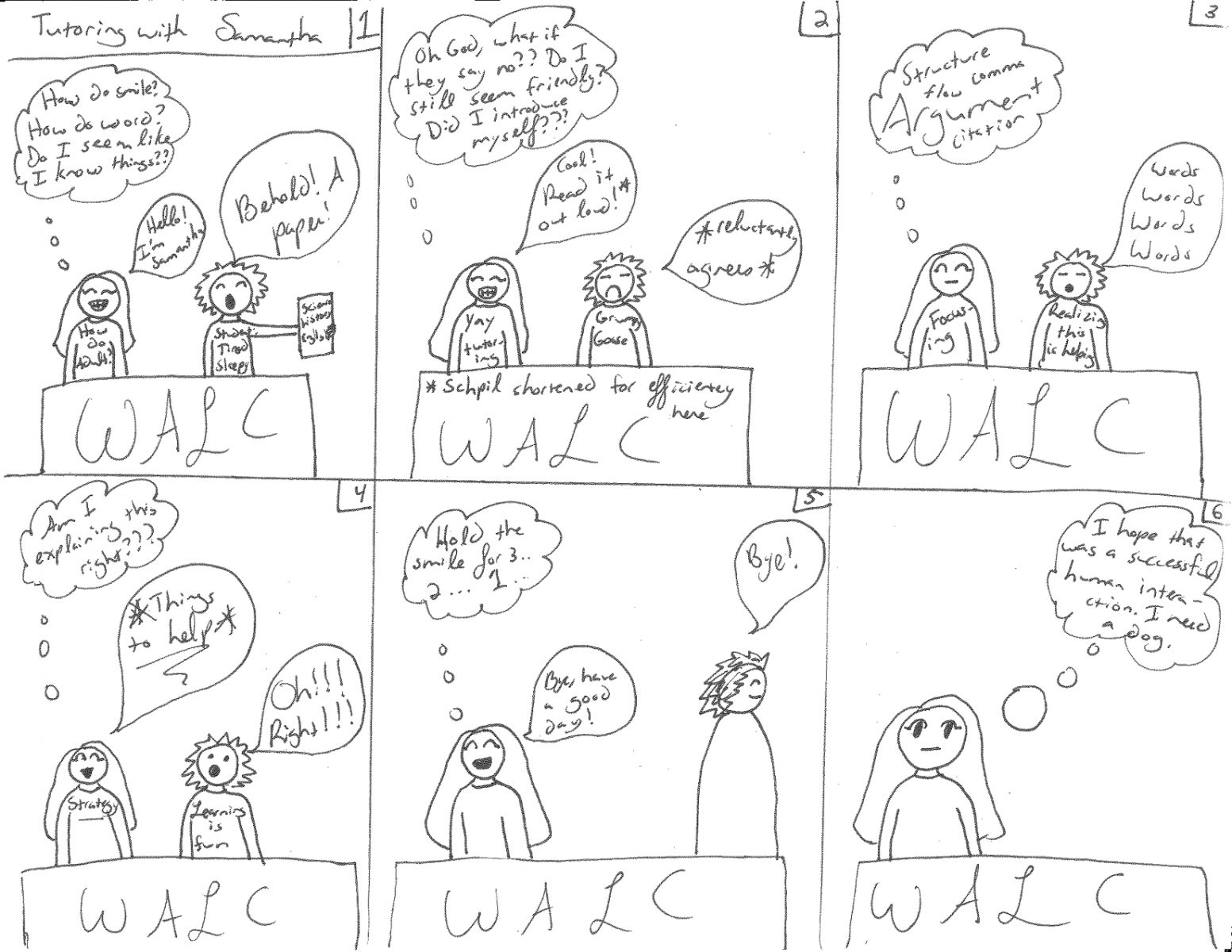From Graduate Writing Tutor Shani Searcy:
As a writing tutor, you get to meet new people and see new face everyday. Even for the students that you may only see once, you know that you’ve made an impact on them (even it was just the explanation of the Oxford comma). Occasionally, you’ll get a person who makes an appointment, and that person impacts you in more ways than you can imagine.
The first time I ever worked with this student, he came in looking for help with grammar and punctuation in a paper for a communications class. Thinking that this would be like many other appointments, beginning with our “we don’t proofread papers” spiel and asking them what the main goal of their appointment was, I realized this appointment would be a little different. As this student explained to me what he wanted to accomplish, I understood that grammar and punctuation wasn’t the issue. Grammar and punctuation errors are what most people think that they want to look over, when in actuality, there are other issues that can be focused on that some may deem more important than just a comma splice or misused semicolon.
For this student’s communication course, they were told to write about some of the things that they were worried about from the class. This included any anxieties, fears, or concerns about the course content or related issues. This student explained to me that they had a communication disorder, making speaking in front of people, meeting new friends, and having everyday interactions difficult; these were things that I had always taken for granted. We read over their paper and also discussed many of the anxieties they were having about taking this communications class. They confided in me and told me that this was one of the very few times they felt comfortable talking about their disorder. I felt grateful that I could help someone in this way, and we continued to meet once a week or every few weeks to talk further about their anxieties, go over their papers, and just catch up on everyday, non-class related things.
I looked forward to these appointments and being able to talk with them, even if it was just about not understanding why people in dorms don’t flush or having a hard time waking up on time for their 8:00 a.m. classes. Having someone feel comfortable enough with you to talk to you about such a wide range of things reminds you that as a writing tutor, you’re more than just a person who explains the correct use of a hyphen; you are a tutor, a peer, and sometimes even a friend.
